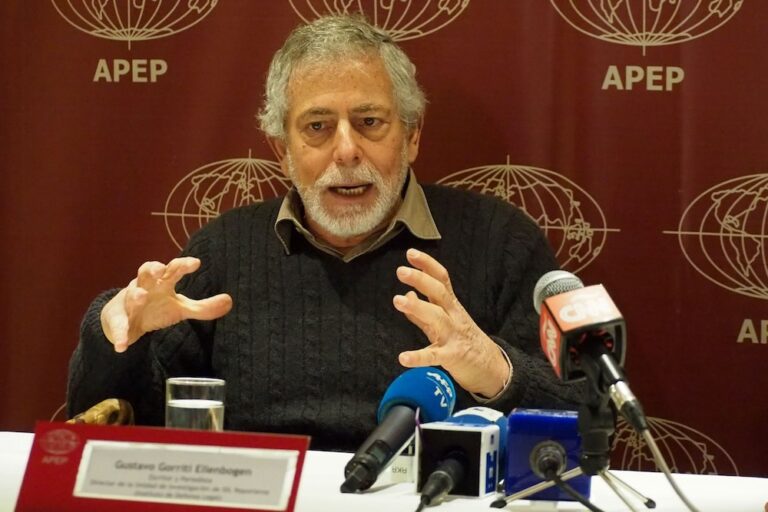(IPYS/IFEX) – On 5 February 2009, free lance journalist Julio Vásquez Calle received a threatening telephone call from an unidentified individual who warned him that if he failed to withdraw accusations he had made in one of his reports he would be imprisoned. The journalist’s family was also mentioned in the threats against him. The […]
(IPYS/IFEX) – On 5 February 2009, free lance journalist Julio Vásquez Calle received a threatening telephone call from an unidentified individual who warned him that if he failed to withdraw accusations he had made in one of his reports he would be imprisoned. The journalist’s family was also mentioned in the threats against him. The caller referred to accusations made by Vásquez on 13 January, when he published photographs that showed evidence of police involvement in acts of torture committed against approximately 30 residents of the villages of Ayabaca, Huancabamba and Pacaipamba, which are located in the Piura region. The alleged torture took place in August 2005, in a camp owned by the Majaz mining company (now Río Blanco Cooper S.A.). The villagers were protesting against the work being conducted by the mine. Their case is being investigated by the authorities.
Vásquez received the photographs from an anonymous source. The journalist works in the Piura region of northern Peru, and is associated with the Radio Cutivalú radio station.
According to Vásquez, the threat confirms his belief that he has been followed ever since he published the photographs. He has also received several telephone calls during which nobody responds when he answers the call.
The journalist filed a complaint about the threats with both the Ombudsman’s Office (Defensoría del Pueblo) and the National Attorney General’s Office (Fiscalía de la Nación).
IPYS calls on the authorities to investigate Vásquez’s case and identify those responsible for the threats.
In a separate incident, on 7 February, employees at the Santa Gema hospital harassed Radio Oriente radio station and Canal 8 television station journalist Pedro Valencia to prevent him from interviewing an indigenous woman, from the Shawi ethnic group, who had complained of not having been fed since she gave birth four days earlier. The incident took place in Yurimaguas, Loreto region, in northeastern Peru.
Valencia was interviewing the woman when a hospital employee told him to leave. When the reporter refused, two other hospital workers attempted to snatch his microphone and videocamera, saying that he was not permitted to report on the case.
The journalist decided to leave the hospital but found that the door was locked. When he asked to be allowed to leave, security guards told him they would not open the doors until the police arrived. When the police arrived, they confirmed the critical condition of the woman that Valencia had attempted to interview.
On 9 February, Valencia went to the hospital again to interview its director, Lidia Navarro, about the case, but security guards threw him out of the building.
IPYS attempted to contact the hospital’s director but she has not responded to the organisation’s telephone calls.


